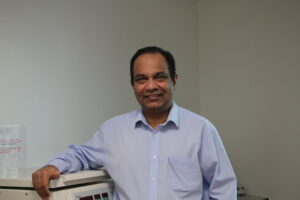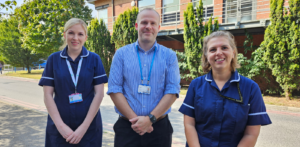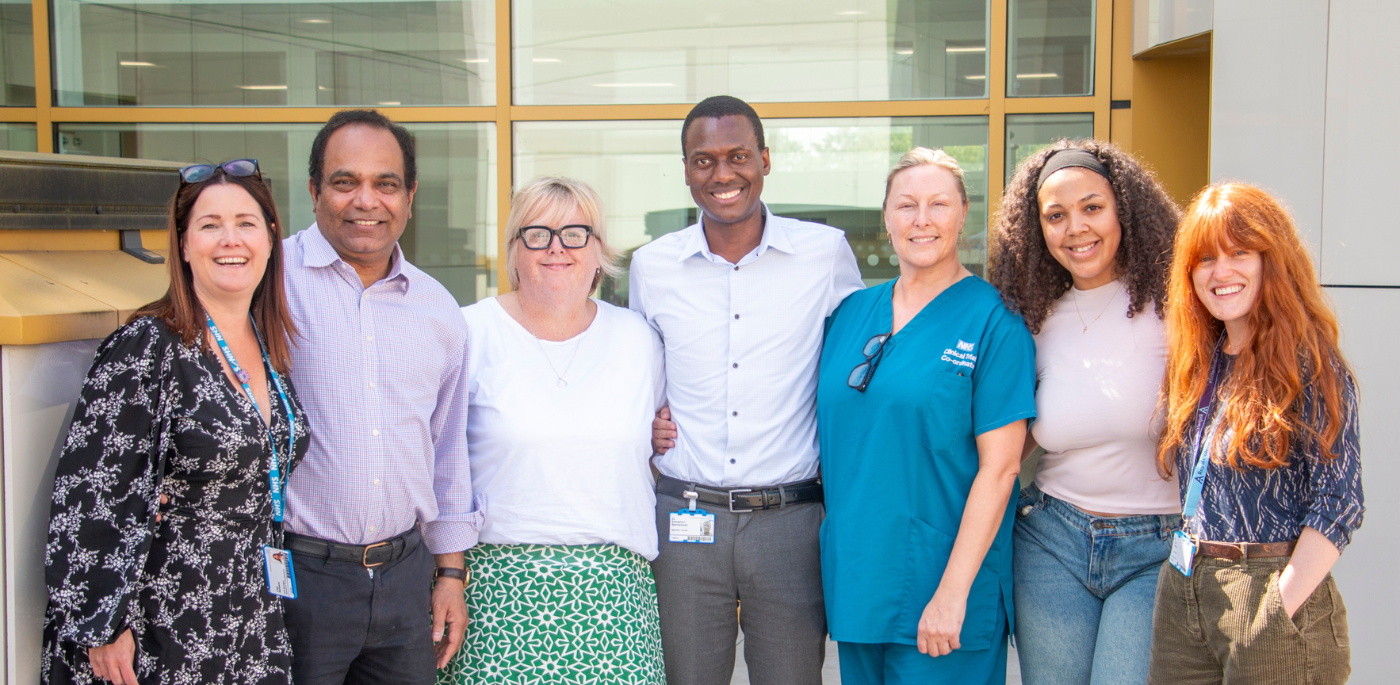Thousands sign up in-year to support potentially ground-breaking research projects
Hospital staff across the Humber region have spent the year at the forefront of clinical research.
As 2024 draws to a close, research and development teams working for NHS Humber Health Partnership, which covers hospitals across Hull, Cottingham, Grimsby, Goole and Scunthorpe, plus some community services, have worked on more than 650* individual health research studies in-year.
Over 4,700 patients and users of the group’s health services across East Yorkshire and Northern Lincolnshire agreed to take part in research across 27 specialties this year, including cardiovascular disease, obesity, respiratory diseases, cancer, kidney disease, digestive diseases, diabetes, infectious diseases, and vascular disease.

Professor Thozhukat Sathyapalan
And while people often picture clinical research as simple drug trials, this type of study forms only a small proportion of the research teams’ work, as Professor Thozhukat Sathyapalan, Group Director for Research, Development and Innovation explains:
“With the support of local academic partners and Hull York Medical School, hospitals across Hull and the Humber region are continuing to place themselves at the forefront of clinical research.
“While some studies do look at the efficacy of drug treatments, many others investigate the effectiveness of therapeutic work with patients, or use questionnaires and patient data to look for trends or to influence treatment options going forward.
“Being able to offer local people opportunities to get involved in research is really important, not only in terms of improving the health of the local population, but also in discovering and developing cures, providing access to new and emerging treatments, understanding how certain conditions can affect people, and even being able to attract the best healthcare staff and academics to our region.
“We value every single person who helps us on our research journey, looking into many different conditions such as IBD, vascular disease and cancer, and would like to thank everyone who’s taken part or signed up to be involved this year for their willingness to help us and others like them.
“Signing up to a trial doesn’t have to be difficult or time-consuming, but could make all the difference to thousands of other patients in the future, not just in our region but across the world.”

(L-R) The FRONTIER team: Kayleigh Brindle, Professor Michael Crooks, and Karen Watkins
One of the most popular studies over the past 12 months has been the Born and Bred in (BaBi) study. This study uses data which is already held about local people to shape family health services and highlight societal changes which could improve long-term health outcomes for children and families. Having started in Hull in February, more than 1,200 people signed up in the first eight months, that’s over three times the original target for the year, and in the last month, the same study has launched in Northern Lincolnshire too.
Clinical teams from the region have been no strangers to the global stage either, with members of Hull’s respiratory clinical trials team being among those invited to present their projects and potentially ground-breaking findings to international research colleagues. Such projects include the FRONTIER Programme, a two-year project in partnership with Chiesi looking at undiagnosed COPD which was recently cited as best practice in Westminster.
During the first phase of the project, 201 patients who previously attended an NHS Lung Health Check and who reported symptoms of lung disease and/or had emphysema on their CT scan were invited back for further COPD testing. Over two thirds of those, 136 people, went on to receive a COPD diagnosis, suggesting that the NHS Lung Health Check also presents a notable opportunity to identify and enable timely treatment for other respiratory illnesses.
A collective celebration of healthcare research event, involving doctors, nurse and therapists working across the region’s hospitals, will take place in the New Year.
If you’d like to get involved with healthcare research or lean more about what’s involved, speak to your healthcare professional or visit https://www.hull.nhs.uk/research/
* The figure of 650 studies is a cumulative total across the research portfolio, with some projects actively recruiting and some providing follow-up activities.

